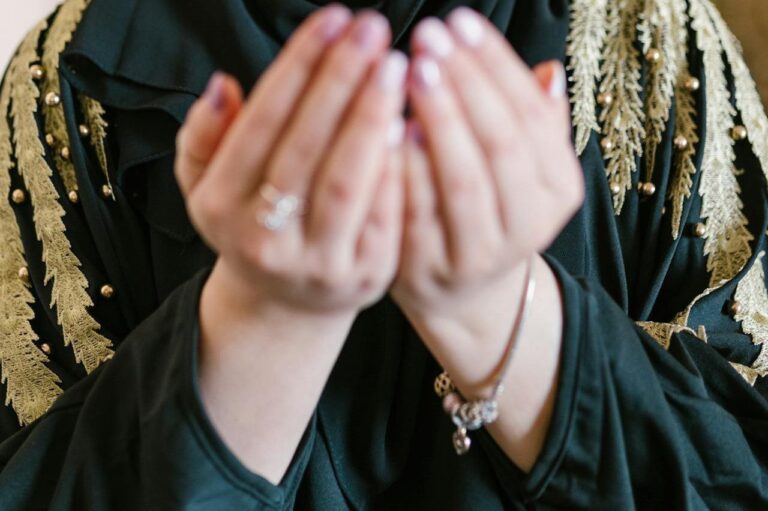A Comprehensive Guide to Zakat Al Fitr: The Obligatory Charity
For Muslims around the world, Ramadan is a time of spiritual reinvigoration, communal solidarity, and charitable giving. At the heart of this month-long celebration lies the obligation of sadaqah fitr, a form of obligatory charity with deep roots in Islamic tradition. This blog post aims to provide a comprehensive understanding of Zakat Al Fitr, from its historical and religious significance to the practical rules and calculation of fulfilling this essential pillar of Islam.
What is Zakat al Fitr?
Zakat Al Fitr also known as sadaqah fitr often translated as ‘almsgiving of fast-breaking,’ is a special form of charity that is obligatory for every Muslim—male and female, young and old—before the Eid al-Fitr prayer for the expiation of fasting, taraweeh, and Itikaf.
If a Muslim possesses wealth exceeding the nisab (the minimum threshold for Zakat), to the exception of loans, necessities, and usable items, and this wealth remains in his possession at the dawn of Eid al-Fitr, then it becomes obligatory for him to give Zakat al-Fitr before the Eid al-Fitr prayer. This obligation applies regardless of whether the wealth is for trade or not, and whether a full Islamic year has passed or not.
Historical and Religious Context
The concept of Sadaqa al Fitr originated in the earliest days of Islam. Many hadith provide detailed instructions about who should give Zakat and to whom it should be distributed. In a hadith, there is a strong emphasis on this obligatory charity:
The Prophet Muhammad (peace be upon him) appointed a person and made the announcement in the streets of Mecca that Zakat al-Fitr is obligatory on every Muslim, whether male or female, young or old, free or slave. [Abu Dawood]
Abdullah bin Tha’labah reported from his father that he said: “Every person is liable to pay one Sa’ of dates. Whether he be young or old, free or a slave, male or female, rich or poor. Allah purifies the rich with it, and to the poor, it is a means of lifting them out of poverty, as it is what he takes from them.” [Abu Dawood]
Who Needs to Pay Zakat Al Fitr
Any Muslim who possesses the Nisab—the minimum amount of wealth required to be subject to Zakat—on the day of Eid is obliged to pay Sadaqa Fitr. The purpose is to purify oneself from any indecent act one may have unintentionally performed during the fasting in Ramadan. This is particularly significant since it is mandatory for those who can afford it to provide a meal for the less privileged.
The Wealthy Men
It is obligatory for a wealthy man to pay Zakat al-Fitr on behalf of himself and also on behalf of his minor children. If the minor children are wealthy, Zakat al-Fitr should be paid from their wealth; however, if they are not wealthy, it should be paid by the father. If the adult children are wealthy, it is not obligatory for the father to pay Zakat al-Fitr on their behalf. However, if the father pays it with their permission, then it is permissible.
The Wealthy Women
It is obligatory for a wealthy woman to pay her own Zakat al-Fitr, but it is not obligatory for her to pay on behalf of her children, her parents, or her husband.
The Poor
From the above-mentioned hadith, it is understood that Zakat al-Fitr is also obligatory for the poor. The reason for this is that the obligation of this charity is to purify the fasting person from indecent and frivolous talk, which often occurs during fasting. Now the question arises, to whom should Zakat al-Fitr be given when it becomes obligatory upon the poor? The answer to this is that the Prophet Muhammad (peace be upon him) explained the reason and benefit of Zakat al-Fitr to impress its importance upon people’s minds so that they do not neglect or become lazy in fulfilling it.
Now, regarding whom to give this charity when it becomes obligatory upon the poor, the solution is that wealthy individuals should give it to the needy, and the needy should give it to those who are poorer and more in need than themselves.
However, the correct stance is that it is not obligatory upon the poor. If it were made obligatory upon them as well, then the question arises as to who would remain eligible to receive it. Nonetheless, even if the poor individuals give it, they will still receive the reward. (Durr al-Mukhtar)
The Beneficiaries of Zakat Al Fitr
The recipients of Zakat Al Fitr are typically the poor and needy, individuals who may not have the means to celebrate Eid as others do. By understanding who should receive this charity, Muslims can ensure it reaches those who need it most, leading to a profound positive impact.
Those who are beneficiaries of Zakat are also beneficiaries of Zakat al-Fitr, such as brothers, sisters, nieces, nephews, uncles, aunts, stepfathers, stepmothers, grandparents, in-laws, and others. (Shami)
Zakat al-Fitr should not be given to mother, father, grandfather, grandmother, son, daughter, grandson, granddaughter, grandson-in-law, granddaughter-in-law, husband, wife, etc.
Best Time to Pay Zakat al Fitr
Zakat al-Fitr becomes obligatory at the time of Fajr on the day of Eid al-Fitr (i.e., when the time for Suhoor ends). It is also permissible to pay it during the blessed month of Ramadan, but it is recommended to pay before the Eid prayer, as it holds great virtue.
If it is not paid before the Eid prayer, it should be paid afterward, but the reward will be less. Delaying beyond the day of Eid is against the Sunnah and disliked, but it remains obligatory nonetheless.”
The wisdom behind Zakat al Fitr
The Prophet Muhammad (peace be upon him) said, “The fast of Ramadan hangs between heaven and earth, and it will not be lifted to the heavens without Zakat al-Fitr.” (Anwaar al-Saum)
It is also Narrated by Hazrat Abdullah bin Abbas (may Allah be pleased with him): The Messenger of Allah (peace be upon him) made Zakat al-Fitr obligatory as a means to purify, those who fast, from any indecent act or speech, and to provide food for the needy and destitute. [Abu Dawood]
These hadith indicate two wisdoms behind Zakat al-Fitr:

Firstly, on the day of celebration and joy for Muslims, Zakat al-Fitr ensures the provision of food for the needy and destitute, thereby facilitating their comfort and well-being.
Secondly, it serves as expiation and atonement for any indecent acts or careless speech committed during fasting, thus purifying the fasting person from any negative consequences of these acts.
How much is Zakat al Fitr?
Zakat al Fitr amount is often mentioned differently. Narrated Ibn Umar:
The Messenger of Allah enjoined the giving of Zakat al-Fitr as one Sa of dates or one Sa of barley upon every Muslim, slave or free, male or female, young or old [Bukhari]
According to the most correct opinion of the scholars, what is also included with these types is anything that the people nourish within their countries like rice, maize, millet, and anything similar.
Another view is that giving the equivalent of 1.75 Kg of wheat or Grains, its value fulfills the obligation of Zakat al-Fitr. [Fatawa Darululoom]. Generally, people inquire about how much zakat al fitr is in different regions. Determine the value of 1.75 Kg of wheat from any shop and rely on that to give Zakat al-Fitr.
If someone gives more than this specified amount, they will receive additional rewards separately. Giving more than the specified amount is better to avoid doubts.
Rules of Paying Zakat al-Fitr:
Rule 1: If someone dies before the morning of Eid, then Zakat al-Fitr is not obligatory on them, and it should not be given from the wealth left behind. (Alamgiri)
Rule 2: It is preferable and more rewarding to give Zakat al-Fitr before going to Eid prayers. (Alamgiri)
Rule 3: If someone gives Zakat al-Fitr during Ramadan, there is no need to give it again. (Durr al-Mukhtar, Vol. 2)
Rule 4: If someone cannot give Zakat al-Fitr on Eid day, he can give it later. (Hidayah, Vol. 1)
Rule 5: If someone did not fast in Ramadan for a legitimate reason, Zakat al-Fitr is still obligatory for them. There is no difference between those who fasted and those who did not. (Alamgiri, Vol. 1)
Rule 6: One person’s Zakat al-Fitr can be given to one needy person or divided among several. Several individuals can collectively give Zakat al-Fitr to one needy person, but the amount should not exceed the minimum threshold for Zakat. (Durr al-Mukhtar, Vol. 2)
Rule 7: If someone gives a valuable item instead of grain or clothes as Zakat al-Fitr, it is better. (Alamgiri, Vol. 1)
Rule 8: Zakat al-Fitr is obligatory on a man for himself and his minor children as well. Similarly, if a child is born before the morning of Eid, Zakat al-Fitr should also be given on their behalf. (Durr al-Mukhtar)
Zakat Al-Fitr in Modern Times
In our contemporary era, paying obligatory charities is posed with both challenges and opportunities. With the proliferation of digital technology, new avenues for payment and distribution have emerged, providing new ways to pay zakat al fitr online with convenience. Direct bank transfers, online donation services, or mobile payment apps are used to pay zakat al fitr. But it need special care to pay zakat al fitr online. Take care of the eligibility criteria of beneficiaries and the net amount after the deduction of taxes.
Conclusion
Ramadan draws to a close, it’s time for all Muslims to consider the relevance of Zakat Al Fitr in their lives. By fulfilling this obligatory form of charity, individuals can enrich their faith, express their gratitude, and ensure the well-being of their community.
This blog post serves as a reminder and guide for both the seasoned practitioners and the newcomers to the faith, inspiring them to approach Zakat Al Fitr with a renewed sense of purpose and responsibility. By educating ourselves and others on this topic, we can amplify the positive impact of this practice and take yet another step towards being better stewards of our faith and the world around us.









